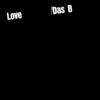
«Multiverse: Theory of Anything»is the follow-up album of Norwegian reeds player-composer Anders Lønne Grønseth’s new quintet, Mutiverse, that released its self-titled debut album last year. Both albums were recorded at the same session on December 2017, featuring an experienced jazz ensemble of strong improvisers – pianist Espen Berg, trumpeter Hayden Powell, bass player Audun Ellingsen and Icelandic drummer Einar Scheving.
Grønseth’s compositions for Multiverse suggest clever references to the classical tradition but rely on spontaneous and intuitive interplay. Little or nothing is planned out, yet the Multiverse relates mostly on the harmonic and formal structure of the tunes. Grønseth’s distinctive treatment and use of tonalities (often several at a time) creates a tonal sphere for the music to emerge and evolve. The gentle and emphatic interplay and the collective, patient development of ideas work as the engine for the organic flow and progression of the music. «Multiverse: Theory of Anything», obviously, refers to scientific theories that can’t be proven but also alludes to Multiverse somewhat theoretical aesthetics and concepts that guide its musical flow.
The opening piece «string Landscape» is perhaps to most jazz one here, a straight-ahead jazz waltz that navigates on a subtly ambiguous rhythms and highlights the soloists P0well and Berg. The title-piece is a beautiful meditation over two contrapunctual melodic lines that may bring out associations to Kenny Wheeler’s works for a similar line-up. «Alternative Timelines (When Henry Met Erik)» is the most ambitious composition here and it draws long historical lines when it spins an enigmatic melody with strong allusions to 20th Century modernist Erik Satie over a bass ostinato borrowed from baroque composer Henry Purcell’s immortal «Music for a While», and fitting it within Grønseth’s own tonal concept Bitonal Scales. The short «Inflation» stresses the rhythm section of Ellingsen and Scheving while «Modal Realism» focuses on the role of Grønseth as a leader and main soloist. The last and mysterious «Dimensional Planes» adds captivating sensual Eastern influences to the highly melodic, rich and nuanced language of Grønseth.
Eyal Hareuveni
Anders Lønne Grønseth (s, bcl), Hayden Powell (tp), Espen Berg (p), Audun Ellingsen (b), Einar Scheving (dr, perc)



































